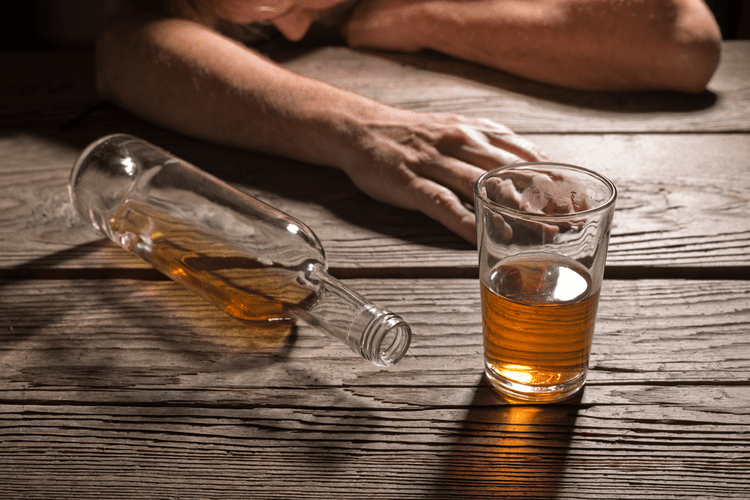They may also garner respect for being able to consume more than others or for their willingness to engage in risky behaviors while drunk. Drinking alcohol may be a way for them to project a carefree and fun-loving image, further bolstering their grandiose self-image. They may therefore use alcohol https://restaurant-e-guide.com/my-friends-think-i-go-just-for-the-coffee/ as a form of medication to cope with those negative feelings. Alcohol acts as a lubricant, making the vulnerable narcissist feel more at ease in social situations that may otherwise seem overwhelming. Alcohol can temporarily alleviate the vulnerable narcissist’s feelings of inadequacy, giving them a false sense of confidence that negates their niggling self-doubt. They tend to display more passive-aggressive behaviors, self-pity, and a victim mentality.
How to cope with the challenges of relating with narcissists or addicted people
For instance, grandiose narcissists, who have an inflated ego, sense of self-importance, and a disregard for others, may turn to alcohol as a way to maintain their grandiosity. This can lead to a pattern of behavior where they continue drinking, despite the negative consequences, which can make it difficult for them to stop drinking. Some of the behaviors exhibited by dry drunks are very similar to those seen in people suffering from narcissistic personality disorder.
Narcissism and alcohol use disorder
When a person has two conditions, the best option is often to treat the two conditions simultaneously. Given that genetic factors and childhood history are strongly linked to narcissism, it doesn’t seem that alcohol alone can directly cause narcissism. Similarly, people with dual diagnosis can manage their symptoms with appropriate treatment. With AUD, a person’s behavior may change depending on whether they are sober or not. An individual with NPD will display a consistent pattern of narcissistic behavior. If you think you have NPD, try to make an appointment with a mental health professional.

Grandiose and Vulnerable Narcissism and Alcohol Outcomes

Narcissism has positive attributes, including increased self-confidence and self-sufficiency. However, narcissism becomes an issue when it negatively affects aspects of a person’s life and relationships. Many people with narcissistic behaviors are highly controlling of their environment and health.
Treatment Approaches for Narcissism and Alcoholism
NPD is a mental health condition in which a person displays a pattern of grandiose behavior, lack of empathy for others, and need for excessive attention and admiration 2. When two conditions like narcissism and alcoholism occur together, sometimes people believe that one disorder causes the other, but co-occurring disorders are more complex than that. Research has shown that there is an overlap between alcohol use disorder and personality disorders, including NPD. One study found that among individuals who reported alcohol use, 9.1% were diagnosed with NPD at some point during their lives 1. Narcissism is a personality trait where people may feel a need for admiration, show a lack of empathy, or be self-involved. It is typical for people to display occasional narcissistic traits, but a pattern of narcissism could be part of narcissistic personality disorder (NPD), a mental health condition.
Seeking Help and Recovery
- Avoid enabling the alcoholic narcissist’s destructive behaviors by refusing to make excuses for their actions.
- Many people struggling with substance misuse have co-occurring mental health disorders.
- Also, people with AUD might seem to behave similarly to people with narcissistic traits.
Healthcare professionals and psychologists may use a set of criteria from the Diagnostic and Statistical Manual of Mental Disorders, Fifth Edition (DSM-5) to diagnose narcissism or AUD. With both conditions, the benefits of therapy depend on your willingness to work on yourself. It’s possible for people with AUD to successfully stop using alcohol when they have the right support and treatment.
- With NPD, for example, there are no drugs specifically used for the treatment of the personality disorder, but antidepressants or anxiolytics may be prescribed if depression or anxiety is present.
- Both grandiose narcissism and vulnerable narcissism show a strong link to substance use disorders.
- Under the influence of alcohol, individuals may display more self-centered and attention-seeking behaviors, seeking validation and admiration from others.
- Active Recovery Companions specializes in providing support for individuals facing the difficulties of addiction recovery, including those with co-occurring disorders like AUD and NPD.
- People with AUD may have self-awareness of their condition and a desire to change.
- If someone you know has alcoholic narcissist symptoms, don’t neglect your own needs.
Similarities and Differences: Narcissism and Alcoholism

You can connect with a mental health professional using the Healthline FindCare tool. You might also engage in lifestyle changes and self-care strategies in order to make progress. One such change might be to avoid substances like alcohol if they tend to trigger harmful behavior. However, treatments like psychotherapy, https://ucrazy.org/video/1243268420-alkogolopytskrysamiotryvokizlekiizhdanova.html group support, and self-care strategies can help people with either condition feel much better.
- With a background in Sociology and Psychology, along with certifications in CPR, CRS-1, PADI Scuba Diving, MITT, and NASM-CPT, Taylor offers holistic support and guidance.
- A 2014 study into narcissism and the use of internet pornography found a direct correlation between hours spent viewing pornographic material and the extent of narcissism.
- Studies of twins and families show heritability estimates of 50-60% for narcissistic personality disorder and 40-60% for alcohol use disorder.
- Not all individuals with either AUD or NPD will develop the other disorder.
However, in some cases, alcohol addiction develops from social drinking or as a form of self-medication. People with narcissism may have difficulty recognizing or accepting when they lose control of their drinking. Learning about clinical narcissism and alcoholism independently makes it easier to http://www.dickmeitz.com/News/hud-tucson understand their connections and how the conditions may influence one another.
